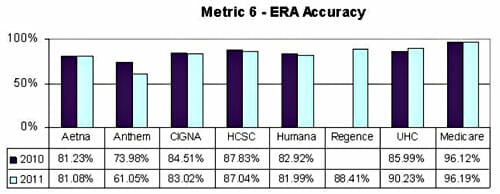The Administration's War on Due Process
Obama's Department of Education has been issuing a series of new rules to colleges that accept government funds (ie pretty much all of them) that going forward, they will be required to
- Expand the definition of sexual harassment, forcing it to include even Constitutionally-protected speech. Sexual harassment will essentially be redefined as "somehow offending a female."
- Eliminate traditional protections for those accused of sexual harassment under these new definitions. The presumption of innocence, beyond a reasonable doubt guilt standards, the ability to face and cross-examine one's accuser, and the right of appeal are among centuries old common law traditions that the DOE is seeking to eliminate in colleges.
Unfortunately, this is a really hard threat to tackle. Most of those concerned with civil rights protections outside our small libertarian community are on the left, and these same people are often fully vested in the modern feminist belief that all men are rapists. It also puts libertarians in the position of defending crude and boorish speech, or at least defending the right to that speech.
But at the end of the day, the DOE needs to be forced to explain why drunk and stupid frat boys chanting crude slogans outside the women's center on campus should have fewer rights as accused than does a serial murder.
Michael Barone has more today in the Washington Times:
But more often they involve alleged offenses defined in vague terms and depending often on subjective factors. Lukianoff notes that campus definitions of sexual harassment include "humor and jokes about sex in general that make someone feel uncomfortable" (University of California at Berkeley), "unwelcome sexual flirtations and inappropriate put-downs of individual persons or classes of people" (Iowa State University) or "elevator eyes" (Murray State University in Kentucky).
All of which means that just about any student can be hauled before a disciplinary committee. Jokes about sex will almost always make someone uncomfortable, after all, and usually you can't be sure if flirting will be welcome except after the fact. And how do you define "elevator eyes"?
Given the prevailing attitudes among faculty and university administrators, it's not hard to guess who will be the target of most such proceedings. You only have to remember how rapidly and readily top administrators and dozens of faculty members were ready to castigate as guilty of rape the Duke lacrosse players who, as North Carolina Attorney General Roy Cooper concluded, were absolutely innocent.
What the seemingly misnamed Office of Civil Rights is doing here is demanding the setting up of kangaroo courts and the dispensing of what I would call marsupial justice against students who are disfavored by campus denizens because of their gender or race or political attitude. "Alice in Wonderland's" Red Queen would approve.
As Lukianoff points out, OCR had other options. The Supreme Court in a 1999 case defined sexual harassment as conduct "so severe, pervasive, and objectively offensive, and that so undermines and detracts from the victims' educational experience, that the victim-students are effectively denied equal access to an institution's resources and opportunities." In other words, more than a couple of tasteless jokes or a moment of elevator eyes.
Women'g groups all the time say things like "all men are rapists." That's pretty hostile and degrading to men. My guess is that somehow this kind of gender-hostile speech will not be what gets investigated by these kangaroo courts.
